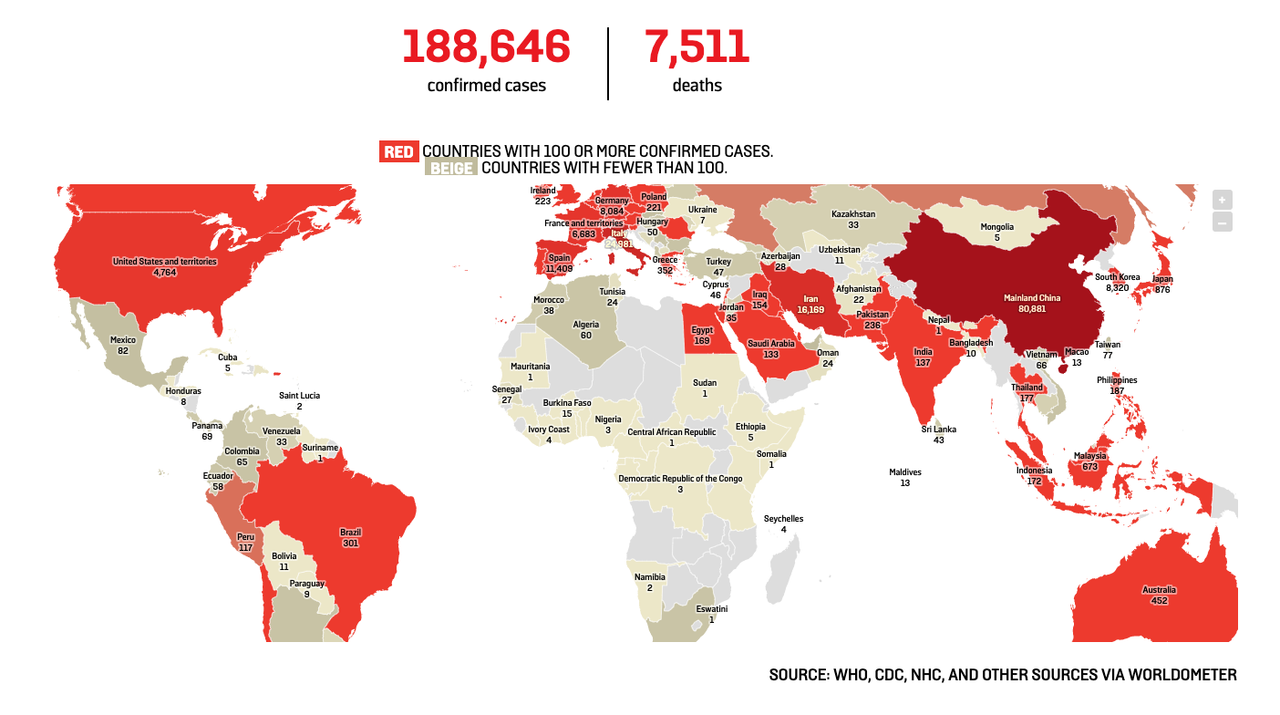The Covid-19 outbreak has now been confirmed in 30 out of Africa's 54 countries.
Bruce Bassett, a data scientist at the University of Cape Town, warned that a virus crisis in Africa is about to begin and could decimate low-income communities across the continent, reported Science Magazine.
"My concern is that we have this ticking time bomb," said Bassett, adding that Africa's handling of the pandemic could be underwhelming due to the weakest health care systems in the world.
He said social distancing would be hard to enforce across overpopulated cities and slums in some of the world's poorest countries.
"We really have no idea how COVID-19 will behave in Africa," said HIV researcher Glenda Gray, president of the South African Medical Research Council.
WHO Director-General Tedros Adhanom Ghebreyesus said last month that the fast-spreading virus will strike Africa and trigger a health crisis.
Since Africa confirmed its first case in Egypt on February 14, and by early March, there were several cases in Algeria and Nigeria. Now cases across the continent have exploded to 450.
Current cases aren't an accurate representation of reality, and most are laggard, due to the lack of test kits on the continent.
At the moment, the most affected region is North Africa, where community spreading has been underway for more than a month.
Egypt has recorded 196 cases and four deaths; South Africa recorded 62 cases and no deaths.
In east Africa, there are over 20 cases across the six countries, but the issue is that many of these countries lack test kits.
Senegal has been the most hard-hit West African country with 26 cases, many of which originated from a citizen who traveled to Italy.
As confirmed cases in Africa have increased in the last several weeks, dramatic steps have been taken to reduce air traffic to and from virus crisis regions, such as Asia, Europe, and the Middle East.
South Africa has revoked 10,000 visas issued to people from China and Iran, two countries that have some of the highest confirmed cases and deaths.
South Africa's health minister Zweli Mkhize told reporters this week that community spreading is underway:
"The reality is this: For now, individuals that have been infected thus far are people who can afford going on holiday abroad or they travel for business. Those individuals also have accommodation for self-quarantine," the minister said.
"However, when this outbreak starts affecting our poor communities, where families do not have enough rooms or spaces to quarantine those affected, we will experience a crisis."
Mkhize said enforcing a lockdown in all communities would "be very hard."
Some experts are worried that the fast-spreading virus has moved across Africa undetected:
"We have to ask the question: How strong are our monitoring systems, especially those in rural areas or with limited technology? That is a reality on the continent, and perhaps why we have not yet seen a surge in cases," public health researcher Dr. Shakira Choonara told AP News.
Professor Cheryl Cohen, with South Africa's National Institute for Communicable Diseases, warned that confirmed cases and deaths could exponentially rise in the weeks ahead.
The world must prepare for the next outbreak zone, which is Africa, where the health care system could easily be overpowered by the virus and lead to soaring mortality rates.
